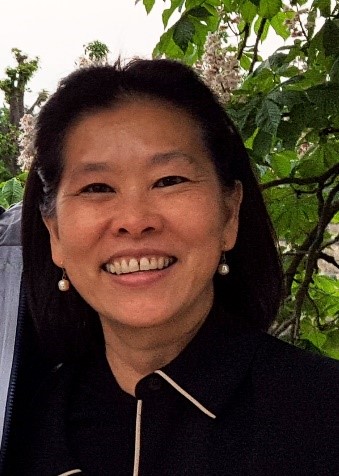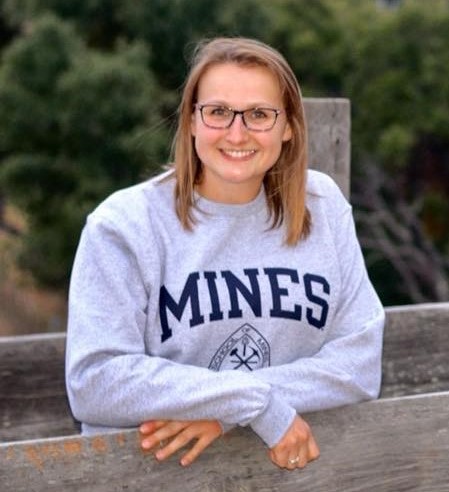About Us

Kim williams
Professor, Department of Chemistry
About my lab
Research in the Williams group is highly interdisciplinary, integrating analytical chemistry, (nano)materials, polymers, and biology. We are interested in developing new analytical techniques and probing complex materials and biological systems to better understand their function and behavior. Our aims are to establish a fundamental understanding of transport mechanisms leading to the successful separation and characterization of nanometer- to micron-sized analytes and to apply the developed technologies to solve high impact problems ranging from solar energy conversion to protein aggregation in biopharmaceutics.
Our group is known for advancing the field-flow fractionation (FFF) techniques and particularly for pioneering work in thermal FFF for composition and architecture analysis. We have a major interest in understanding the movement of materials in a temperature gradient (thermophoresis) and extracting size (molecular weight), chemical and architectural distributions of complex mixtures of polymers, nanoparticles, and nanocomposites. We work to improve current FFF instrumentation and practices through design of better separation surfaces and channel configurations.
In the materials area, we are interested in quantum confined nanoparticles and nanostructures for photovoltaics. This work includes the preparation of silica mesoporous thin films as a potential template for creating Si nanowire arrays and developing new routes to functionalizing Si quantum dots. These projects are done as part of the Renewable Energy MRSEC at CSM and with NREL and provide a great avenue for collaborative work.
We are actively studying protein aggregation kinetics and addressing newly defined challenges in the analysis of these dynamic and complex systems. Our focus is on biotherapeutic proteins and the formation of sub-visible (0.1 μm to 1 μm) protein aggregates. We are also working to understand the chemical and functional diversity of cellular vesicles such as exosomes and their role in cellular processes.
Meet my team

Christine PlavchAk
PhD Candidate in Applied Chemistry
I hail from Belle Vernon, Pennsylvania and earned my B.A. in Chemistry with a Spanish minor from Washington and Jefferson College (W&J). Through research experiences at both W&J and at national laboratories, I have become interested in further understanding the chemistry behind aqueous-based, polymeric materials such as paints and coatings. While new sustainable materials continue to be developed, little is known how additives and the materials’ surface compositions impact the stability and integrity of the materials at the nano-scale. This gives rise to complex analytical and synthesis challenges in the characterization and manufacturing processes. Utilizing thermal FFF, I am working towards understanding how surface compositions and additives impact the behavior of these aqueous-based materials. This work will not only expand the capabilities of FFF techniques in this industry but will also provide information to better optimize the synthesis of these materials.

Sarah Evans
PhD Student in Quantitative Biological Engineering
Hello! I am from Dover, Pennsylvania and earned my B.S. in Applied Physics from Rensselaer Polytechnic Institute (RPI) in upstate New York. My interests in electro-optics evolved as an undergraduate researcher and after working in the semiconductor industry I became fascinated by the possibility of applying concepts and tools from my academic discipline of physics and materials characterization to address important questions in biology. The complexity of Parkinson’s Disease triggered my interest in neurodegenerative disease mechanisms, leading to my overall goal to develop in situ measurements of protein mechanisms that correspond to protein functions in vitro. My research interests lie in developing new metrology techniques in the microwave and terahertz (THz) frequency range. Microwave microfluidics is an emerging field of study that is able to access unique dipole reorientations, ion pairing interactions, and solvation interactions of proteins. I aim to develop new analytical methods employing FFF separations and microwave microfluidics to define the conformational changes, long-range interactions, and solvation dynamics of biomolecules. Understanding these dynamic interactions will be used to support the efforts to create a stronger mechanistic basis for treatments and drug therapies that target pathology-related mechanisms of proteins and biomolecules in order to reduce the occurrence of treatments with negative side-effects.

Kaitlin Lesco
PhD Student in Applied Chemistry
I am from London, Ontario, Canada, and received my BSc In Chemistry from St. Francis Xavier University in Antigonish, NS. I came to Colorado in 2019 and joined the algae biotechnology team at the National Renewable Energy Laboratory. Most of my time here focused on developing analytical methodologies for characterizing algae, specifically focusing on lipidomics and metabolomics. My research interests continue to focus on approaching the analytical barriers associated with implementing biofuels as a viable energy source. Outside of research, I enjoy running, hiking, cooking, skiing, and crafting.

Michael D Toney
PhD Candidate in Applied Chemistry
I’m from Mission, a small border town in southern Texas, and earned my B.S. in Chemistry at the University of Texas Rio Grande Valley. My undergraduate experience was strongly influenced by science outreach. I have carried that love for community engagement with me to Mines where I have developed new chemistry teaching modules and led the Williams’ group outreach at the Rocky Mountain Camp for Dyslexic Kids. My desire to impact our global community has driven exciting research on the frontiers of analytical chemistry. This research orbits around the use of thermal FFF to solve high impact analytical challenges. Hailing from a coastal region, understanding the impact of nanoplastics on marine life is critical to managing the health of an important ecological and economic resource. The challenges presented by this analytical problem are non-trivial and new methodology must be developed to address it. The unique features of FFF make it an ideal candidate to resolve these issues and I’m working diligently on this endeavor.

Elizabeth Betz
B.S. in Biochemistry
I am from Monument, Colorado and came to Mines the fall of 2018. I became interested in chemistry in high school and have continued to pursue this passion at Mines. I was awarded the Mines Undergraduate Research Fellowship for the 2019-2020 school year and through this fellowship I joined the Williams research group. I am currently working to utilize AF4 to quantify biological particles. After graduating, I hope to pursue a career in pharmaceutical science. I enjoy watching movies, baking, and traveling in my free time.